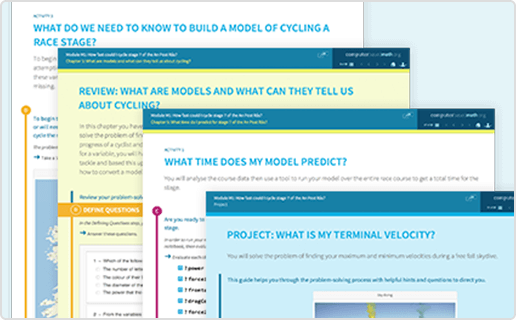Ways we can help
We offer a set of pioneering initiatives to increase the use of computational thinking (CT) for problem-solving at all levels and in all sectors. This includes ready-made courses and materials for professionals—with or without a technical education—colleges, schools and students. We are also the foremost organization for advising policymakers and governments on reform of educational systems and building new curricula to empower the next generation with computational thinking.
Colleges and universities
Be ahead in changing your courses to computational courses—preparing your students for tomorrow's field today.
Whether it's a move from biology to computational biology or law to computational law, computational thinking is key to every future course. As high-powered computation is driving progress in the world's top companies, governments and universities, preparing students to use it now is crucially important. Students should be taught how to employ computational thinking in the context of their course, giving them relevant skills and an advantage that employers will be looking for.
Services

Ready-made and custom-built CT resources
We can deliver fully packaged, broad-based CT courses to underpin a range of study paths. See inside our problem-solving modules.

Curriculum development
We can convert your existing courses to inject CT or build completely new courses with CT at their heart.

Curriculum analysis
We can work with your team to review your current provision including mathematics, computer science, other STEM subjects and business studies and provide training for CT skills to be integrated into your own courses.

Introduce Wolfram EdTech into your solutions
Make access to CT more equitable. Increase access for a broad range of learners whatever their ability and to a wide range of ages with Wolfram cloud-based solutions.
EdTech home pageCollege programs from Wolfram Research

Short challenges in algorithm and code design.

A unique educational and career opportunity.

Gain a certification of proficiency.

A remote learning opportunity for students.

Opportunities to develop the science, technology and tools of the future.

Free academic and professional development opportunities.




